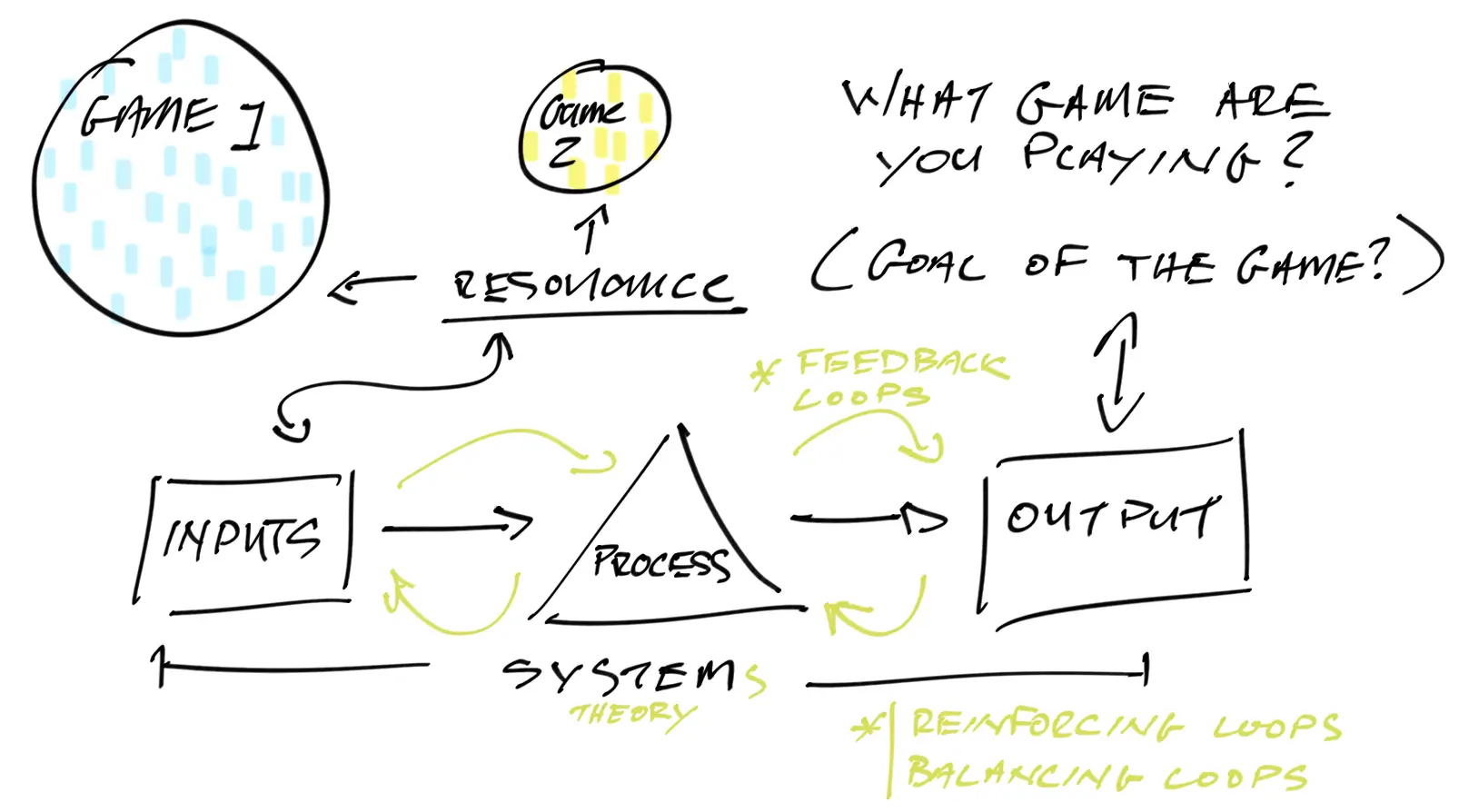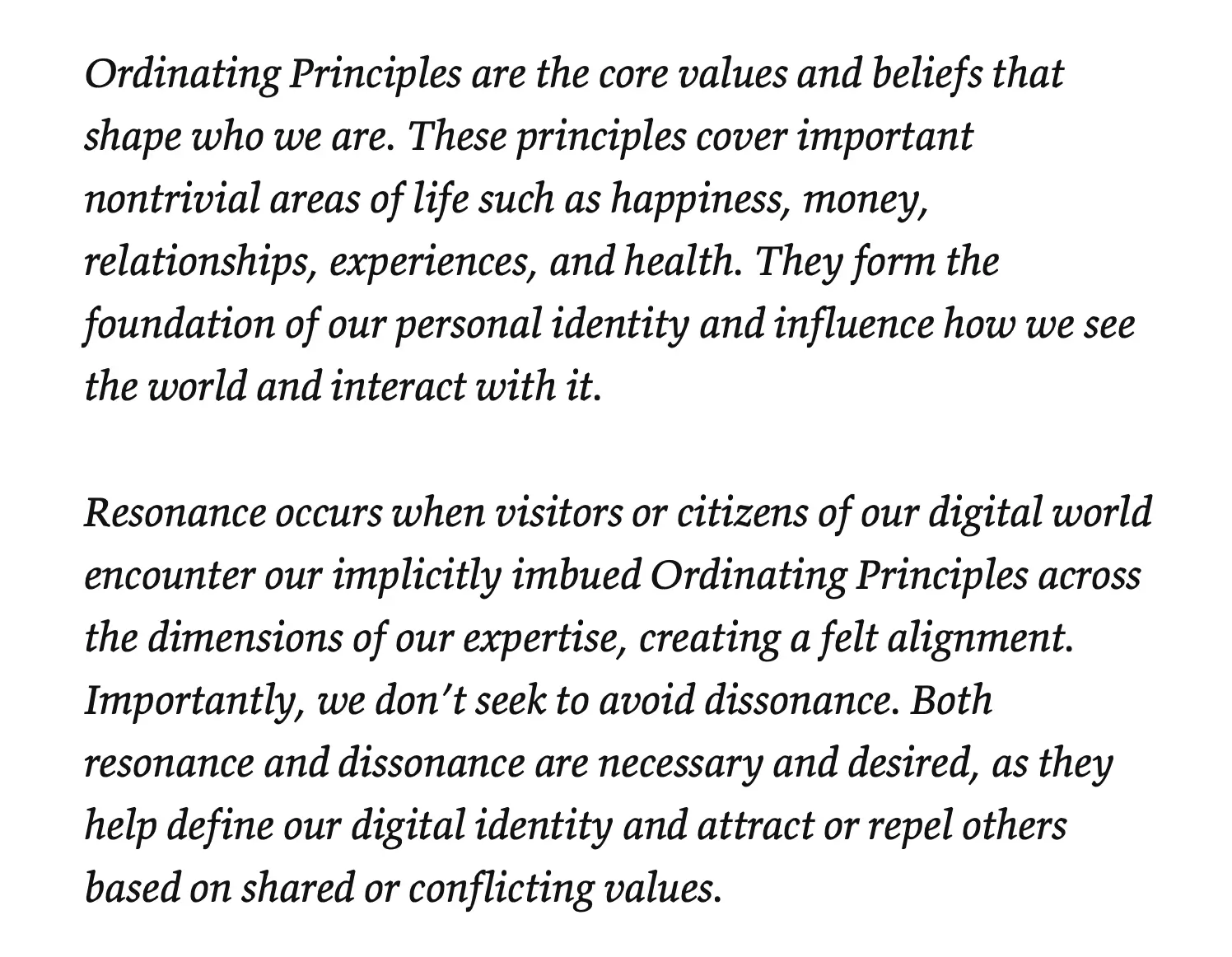Email Archive

Hey, it’s André…
Let’s continue where I left off in the previous issue, which triggered a flurry of responses.
The newsletter was dense. But it needed to be. (It’s worth rereading if attracting the right people into your fold matters to you.)
The thesis: Tiny Digital Worlds is the art and philosophy of attracting and cultivating the RIGHT people. The game we play matters because the OUTPUT of the game is a function of the game being played.
Implicit in attracting the right people is knowing WHO you’re attracting.
This is the focus of this newsletter.
⦿
Last week, I received an email from Jesper L about “niching down”:
“I am a former subscriber of yours, who recently subscribed again after feeling that something feels way off with today’s marketing. Funnels and short term conversions seem to be all that matters. But what happened to actually listening to and selflessly serving your audience. Your idea of optimizing for ‘happy’ really resonated with me and I’m excited to take part of your newsletters again : )
“Anyhow, I am actually a full time marketer, working for a big SaaS company, and running an ecommerce company on the side. As a way to try and not “put all eggs in one basket” when it comes to my career, I’m looking to pursue another solo business.”
Jesper said he’s always struggled with the concept of “niching down” to target and serve a single “persona” (customer avatar).
He argued that it’s restrictive, placing limits on what he’s able to share. “I am so much more than just ‘interested in business,’ I love history, health, wealth, philosophy, parenting, etc.,” he said, then continued…
“So when I came across a concept from Dan Koe on the “Niche of One,” that really resonated with me. Now I’m curious what your take on “niching down” is? Do you think one should find one niche, and stick to it, or do you agree with Dan Koe that you are the niche and that you should speak about all things that interest you…”
Jesper asked some great questions, nicely framing the topic of this newsletter.
I’ve since read Dan Koe’s essay, Niche of One. It reminded me of a book I read several years ago (2018) by Srinivas Rao: An Audience of One.
In it, Rao argues that by focusing your creative work on pleasing yourself, you can increase your productivity, happiness, and (eventually, paradoxically) the size of your audience. We should intentionally create art for ourselves alone — an “audience of one.”
I like both framings, which capture the essence from slightly different perspectives.
The traditional “niche down” advice isn’t wrong — it’s practical for some business models and can be helpful when starting out. But it can become a creative straitjacket if taken too literally.
In The Principles (my principles-based training for Tiny Digital World Builders), I approach this a little differently:

(Thinking in terms of one’s Ordinating Principles goes beyond the idea of ‘Niche of One’ or Audience of One, extending the concept further.)
I have many “Ordinating Principles” across all the nontrivial dimensions of my life…
However, not all are relevant within the dimension of digital marketing, so I don’t explicitly emphasize these when building my World for people like you to inhabit.
This is what I communicated in my response to Jesper:
“Like you, I have other interests: writing/reading, fiction, history, health, wealth, philosophy, and (sim) driving, among others.
“But you won’t see me speaking about health or history or sim racing to my audience. While they embody my interests, they won’t broadly be relevant to my audience, which matters.
“‘Being The Niche’ is what I’m doing on andrechaperon.com, across the dimension of digital marketing, and specifically, being an independent creator with skills, ideas, expertise, and opinions so valuable that an audience is willing to pay for them.”
So, while I never discuss, for example, “philosophy” independently, I embody it throughout my work, sharing it that way…
Members of Tiny Digital World Builders (TDWB) will attest to The Principles’ philosophical nuance and depth. “Philosophy,” in this form, is relevant because of the “world-building” topspin I’ve given it.
I “signal” my Ordinating Principles within everything I write about (example)…
Whether you read my website’s homepage, manifesto, values page, or any of the essays and newsletters, I’m signaling what I care about (within the dimension of digital marketing), what I’m rallying against (my call to arms), all while living this embodiment.
I implicitly and explicitly do this, emphasizing and reflecting my beliefs, values, principles, and worldview.
Conventional marketing wisdom suggests that to help with audience research, offer creation, and understanding our ideal customers, we should create an empathy map, run some Jobs to Be Done scenarios, and use frameworks like the Value Proposition Canvas and The Mom Test to identify the most powerful motivations driving an audience’s behavior.
This works, of course. I’ve done all of these and more over the years.
(To be clear, I’m not suggesting these frameworks are now ineffective — they are very useful! — only that there’s also another way to “identify” (call out) the right people and repel the wrong.)
When I write (communicate), I’m signaling to people who care about what I care about and who align or resonate with my worldview…
I don’t need to define groups of people and then build complex marketing systems to “target” each group.
By doing the thing I teach, I automatically establish credibility and build trust, which, in turn, creates resonance fidelity, attracting (pulling in) the people I seek to serve.
The funnel bros are automatically repelled because my worldview, like a Large Hadron Collider, conflicts with theirs. (This is, of course, intentional.)
I ended my response to Jesper, saying, “Long story short: ‘Be The Niche’ across a dimension you can stake your claim on, that’s so valuable people will pay for it, and allow that to be your North Star.”
I hope this makes sense and resonates.
If you have questions/insights, hit reply and lemme know. I’m all ears. If you disagree, please share your perspective.
Next, I’ll likely connect the two ideas discussed in issues 19 and 20 from a more nuanced perspective.
One of the responses I received about the previous newsletter from Wuyen (“Yen”) asked an interesting question. It’s probably worth sharing here for everyone’s benefit.
Enjoy your weekend!
André
P.S.
“Boredom is when you do the things that make you feel like you have life under control. Not being bored is why you always feel busy, why you keep ‘not having time’ to take a package to the post office or work on your novel. You do have time — you just spend it on your phone. By refusing to ever let your brain rest, you are choosing to watch other people’s lives through a screen at the expense of your own.” — Kate Lindsay, You might just have to be bored.
